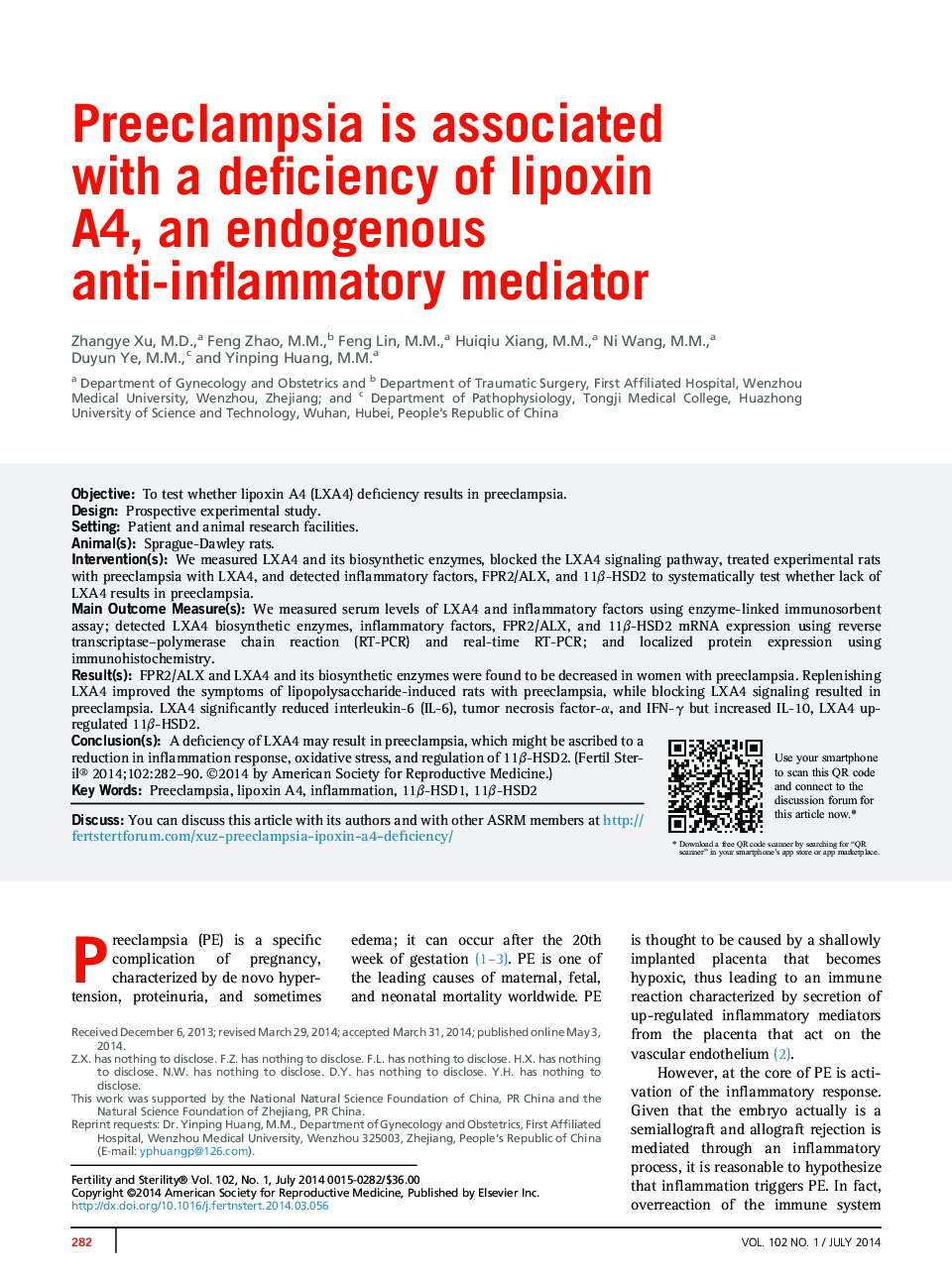| Article ID | Journal | Published Year | Pages | File Type |
|---|---|---|---|---|
| 6180237 | Fertility and Sterility | 2014 | 13 Pages |
ObjectiveTo test whether lipoxin A4 (LXA4) deficiency results in preeclampsia.DesignProspective experimental study.SettingPatient and animal research facilities.Animal(s)Sprague-Dawley rats.Intervention(s)We measured LXA4 and its biosynthetic enzymes, blocked the LXA4 signaling pathway, treated experimental rats with preeclampsia with LXA4, and detected inflammatory factors, FPR2/ALX, and 11β-HSD2 to systematically test whether lack of LXA4 results in preeclampsia.Main Outcome Measure(s)We measured serum levels of LXA4 and inflammatory factors using enzyme-linked immunosorbent assay; detected LXA4 biosynthetic enzymes, inflammatory factors, FPR2/ALX, and 11β-HSD2 mRNA expression using reverse transcriptase-polymerase chain reaction (RT-PCR) and real-time RT-PCR; and localized protein expression using immunohistochemistry.Result(s)FPR2/ALX and LXA4 and its biosynthetic enzymes were found to be decreased in women with preeclampsia. Replenishing LXA4 improved the symptoms of lipopolysaccharide-induced rats with preeclampsia, while blocking LXA4 signaling resulted in preeclampsia. LXA4 significantly reduced interleukin-6 (IL-6), tumor necrosis factor-α, and IFN-γ but increased IL-10, LXA4 up-regulated 11β-HSD2.Conclusion(s)A deficiency of LXA4 may result in preeclampsia, which might be ascribed to a reduction in inflammation response, oxidative stress, and regulation of 11β-HSD2.
